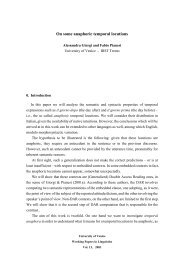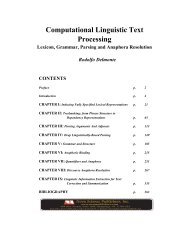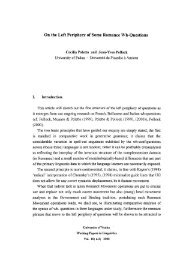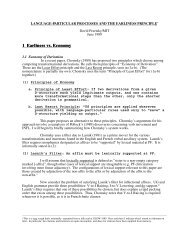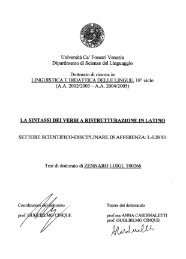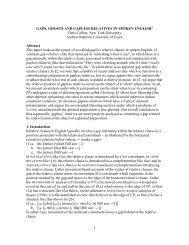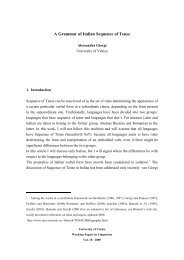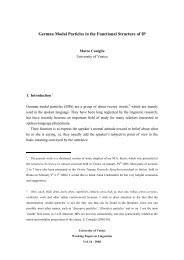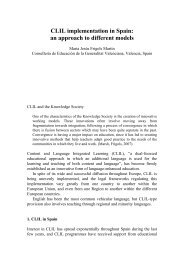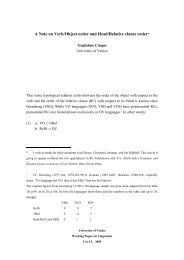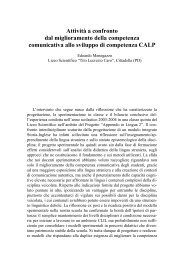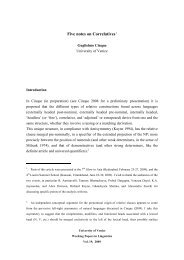Untitled - Lear
Untitled - Lear
Untitled - Lear
You also want an ePaper? Increase the reach of your titles
YUMPU automatically turns print PDFs into web optimized ePapers that Google loves.
Valentina Bianchi<br />
(3) Shei wanted PROi to stop.<br />
When the nonfinite form is within an adverbial clause or is an unembedded<br />
infinitive, the reference of its implicit subject is fixed in a less rigid way. According<br />
to Landau, Williams and others 4 , in this case the implicit subject is controlled by the<br />
“centre of consciousness”, namely, there is logophoric control. The point can be<br />
illustrated by means of the following example (from Williams 1992, 300):<br />
(4) PRO having travelled all day, the hotel was a vision indeed.<br />
Clearly, the person who has travelled all day is the person whose subjective point<br />
of view is reported – that is, the person who perceives the hotel as a vision. By<br />
default, in ordinary language this is the speaker, but in a narrative it may well be a<br />
self distinct from the speaker or the author. In the passage of Rockaby quoted above,<br />
the subject of the unembedded gerundive verb sitting is the Woman on the rocker,<br />
by logophoric control. The same holds in the following passages of the second<br />
section:<br />
8<br />
so in the end<br />
close of a long day<br />
went back in<br />
in the end went back in<br />
saying to herself<br />
[…]<br />
close of a long day<br />
saying to herself<br />
Note that in its first occurrence, the gerundive saying is syntactically adjoined to<br />
the matrix clause and it is controlled by the unexpressed subject of the a finite verb<br />
(went back in; I will return to this unexpressed subject below); in the second<br />
occurrence, the finite verb is not repeated and the gerundive form, unembedded, is<br />
logophorically controlled. The suppression of the finite verb in the repeated lines<br />
also occurs in the first section, strenghtening our impression that Beckett studiously<br />
avoids finite verbs as much as possible.<br />
A third case of logophoric control is the infinitival form in the following passage<br />
of the fourth section, which have a purposive flavour:<br />
she so long all eyes<br />
famished eyes<br />
all sides<br />
high and low<br />
4 Kuno (1987); Rooryck (2001). Of couse, here I am glossing over several differences in the<br />
specific analyses offered by these authors.



